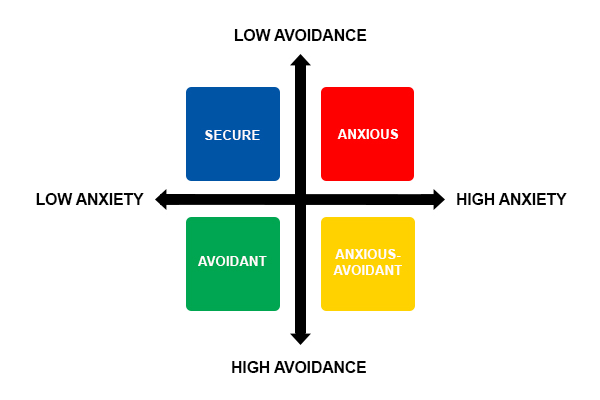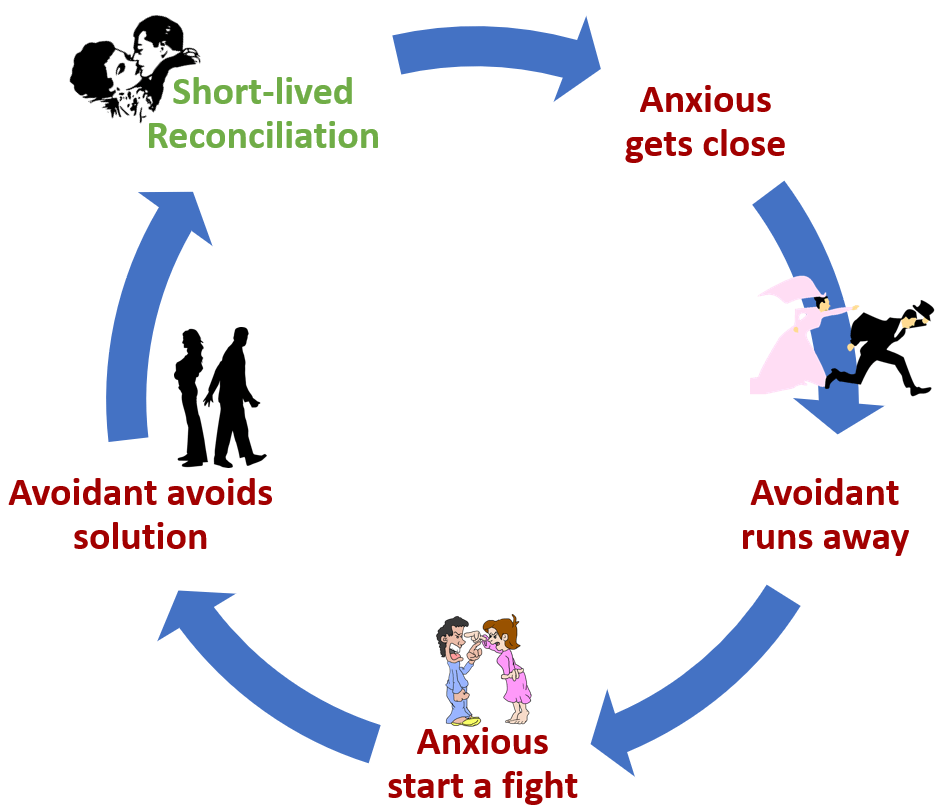If you are in a relationship with someone avoidant, it can be very difficult to get them to open up. You must know the signs of an avoidant partner so that you can have conversations about their behaviors and what they mean for your relationship. In this blog post, we will discuss how to communicate with an avoidant partner, give tips and strategies to increase communication and intimacy with an avoidant partner. We will also go over when to seek professional help from a therapist or counselor for your problems in communicating or intimacy issues related to being in a relationship with someone avoidant.
Contents
- 1 Understanding An Avoidant Partner
- 2 Potential Challenges In A Relationship With An Avoidant Partner
- 3 Tips for Communicating with An Avoidant Partner
- 3.1 Be patient
- 3.2 Be understanding
- 3.3 Create a safe space for them to feel comfortable sharing
- 3.4 Don’t be critical of their feelings or fears
- 3.5 Don’t make assumptions
- 3.6 Encourage them to share what’s going on for them
- 3.7 Take things slow
- 3.8 Check-in regularly
- 3.9 Be patient if your partner is sharing something difficult
- 3.10 Be understanding if your partner is emotional or shuts down
- 3.11 Just listen without judgment or criticism
- 3.12 Reassure them of your love, care, and commitment to the relationship
- 4 When To Seek Professional Help
- 5 Conclusion
Understanding An Avoidant Partner

If you are in a relationship with someone avoidant, it’s important to understand their personality type. People who are Avoidants tend to have the following characteristics:
- Feel uncomfortable being around people and prefer to be alone or with very few people
- Have a hard time trusting others and often think that everyone is out to get them
- Tend to keep things their thoughts, feelings, or fears inside rather than share what they are going through
- If someone gets too close emotionally or tries to be intimate with them in a physical way, they often feel discomfort and withdraw from the relationship.
Potential Challenges In A Relationship With An Avoidant Partner

There are a few potential challenges that can arise in a relationship with someone avoidant:
- May not want to open up and share what they are feeling or thinking with their partner. This can lead to a feeling of distance and emotional detachment in the relationship.
- May pull away or withdraw from their partner when things get too close emotionally, creating a cycle of push and pull in the relationship.
- Find it difficult to form the emotional connection that is needed for intimacy.
Tips for Communicating with An Avoidant Partner

If you find yourself in a relationship with someone avoidant, you must try to communicate and create intimacy together. There are some tips and strategies that may be helpful for your relationship:
Be patient
An avoidant partner can be very difficult to get them to open up emotionally or share their feelings. It will take time and patience on your part to build that trust and connection.
Be understanding
If your partner is avoidant, they may have a hard time trusting people and opening up. Be understanding of their feelings and take things slow. Don’t push them too hard or you may risk pushing them away completely.
Create a safe space for them to feel comfortable sharing
You must create a safe space for your partner to feel like they can open up and share what they are feeling without worrying about judgment or criticism. You may need to give them some time before having deep, serious conversations with them.
Don’t be critical of their feelings or fears
Avoidants are very sensitive to criticism and judgment. If you are critical of them or their feelings, they will not want to open up with you in the future.
Don’t make assumptions
Avoidants tend to keep things inside rather than share what is going on for them. Don’t assume that something is wrong without asking your partner if there’s anything wrong.
If your partner is avoidant, they may not want to share what they are feeling or thinking with you. Encourage them to share their thoughts and feelings with you in a safe and comfortable space that you have created together.
Take things slow
When you first start a relationship with someone avoidant, it’s important to take things slow. Avoidants don’t trust people easily and may need time to build that trust before they open up emotionally or get close physically.
Check-in regularly
If your partner tends to pull away from you when things get too intense, it’s important to check in with them regularly. Ask if they are okay or how you can be there for them when things get tough.
Be patient if your partner is sharing something difficult
If your avoidant partner does end up opening up and talking about what’s going on, it may take some time for them to do so. They may need a few minutes to collect their thoughts and gather the strength they need before they can open up.
Be understanding if your partner is emotional or shuts down
If you feel like things are going well in your relationship with an avoidant, but suddenly everything changes. As they become very emotional or shut down completely.
- It’s important that you understand that this might be how they are coping with their feelings. They may have to shut down emotionally to deal with what’s going on inside of them.
Just listen without judgment or criticism
If your partner does open up and share something difficult, it’s important that you just listen without judgment or trying to give advice. Just let them know you are there for them and that they can trust you.
Reassure them of your love, care, and commitment to the relationship
If things go well in a conversation with someone avoidant, you must reassure them of your love, care, and commitment to the relationship. Let your partner know that you are there for them and will be by their side no matter what.
When To Seek Professional Help

When you’re in a relationship with someone avoidant, you must take time to learn about their behavior and how they function. There are many resources available to help you. You can read articles on the internet or speak to other people who have been through similar experiences as well as relationship coaches.
However, there may come a time when you feel like you need more assistance than just talking to your partner. If you feel like your relationship is in trouble and you need more help than just communication tips, it’s time to seek professional assistance. Some relationships coaches specialize in helping couples deal with the challenges of an avoidant partner.
Conclusion
Dealing with an avoidant partner can be challenging, but it’s important to remember that they do have feelings and they are just trying to protect themselves. Be patient and understanding, your relationship with an avoidant partner may flourish. If you’re having trouble communicating and connecting with your avoidant partner, it’s important to understand them more deeply.
For more information, please contact MantraCare. Relationships are an essential part of human life. It is the connection between people, and it helps us to form social bonds, understand and empathize with others. If you have any queries regarding Online Relationship Counseling experienced therapists at MantraCare can help: Book a trial therapy session


